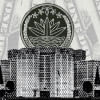With election over, economy to take centre stage in 2024
Despite persisting uncertainty, the economy apparently took a backseat in the last few weeks or so owing to worry surrounding the national elections. Since it took place on Sunday largely peacefully, it did not inflict any major harm on the already bruised economy.
But what would have to change overnight is that the measures that have been pushed back for the polls would now have to be put in place as soon as the new government takes over.
And no excuses will be acceptable if the ruling party, which is set to form the government for a fourth straight term, fails to get down to business with an all-out effort to salvage an economy facing one of its worst crises in recent memories, owing to external factors in general and internal failures in particular.
The country's current woes were initiated by the Russia-Ukraine war and the lingering fallout of the coronavirus pandemic, but mismanagement, inadequate policy decisions and lack of governance meant the impact of the twin global crisis has been harsher for a majority of the people in Bangladesh and that so for a longer period than those in other nations that have brought the situation under control.
Among the economic indicators, foreign exchange reserves have halved in just two years amid higher outflows than inflows. Inflation has skyrocketed. Income disparity has reached a critical level.
The non-performing loans in the banking sector have mounted. The foreign debt is ballooning. Vested groups are making fortunes while the poor are languishing at the bottom.
To start with, the country needs a finance minister who can assure economic actors of the right steps that were missing for a while and can restore order in the financial sector shorn of confidence.
The biggest shake-up has to be in the banking and non-banking sectors, which have been reeling under crisis for the past few years because of inaction over corruption and mismanagement.
The nation needs a central bank governor who will not hesitate to make unpopular decisions.
Bangladesh needs a chairman of the National Board of Revenue who can plug loopholes and raise taxes from the people who are capable of paying taxes but don't do so, instead of milking the compliant taxpayers over and over.
It needs a commerce minister who will not be good at expressing helplessness that won him sympathy from gullible citizens but will also work to make the system as business-friendly as possible.
At the same time, he needs to stand up to price manipulators and hoarders who were also responsible for higher consumer prices.
Amid higher inflation for the past 18 months that caused their purchasing power to erode significantly, people have already had their backs to the wall. If they are pushed further or their condition doesn't change, not only their backs may be broken, even the walls with so many cracks might crumble.
The Bangladesh Securities and Exchange Commission needs to make the stock market vibrant that the current commission has failed to deliver. The floor price, which has been in place since July 2022, has to be scrapped without thinking whether the withdrawal would make any good to the market or not. Figures are already there to prove that the floor has not helped the market in the first place.
During her post-polls courtesy meeting with visiting foreign observers and journalists at Gono Bhaban yesterday, Prime Minister Sheikh Hasina also talked about her goals.
She said the goal of the next government would be to smoothen the journey of Bangladesh as a developing country, sustain electricity generation, and ensure food security.
She also reiterated the targets to improve connectivity further, alleviate poverty further, eradicate extreme poverty, make the country free from homeless, and continue working for Smart Bangladesh, according to news agency UNB.
"The economic progress and ensuring a better life for the people is my main aim," she said.
In order to overcome the existing economic crisis, the country needs strong economic leadership, backed by strong political will, said Selim Raihan, a professor of economics at the University of Dhaka, while speaking to The Daily Star.
"A prudent monetary policy, supporting fiscal policy, and coordinated management of domestic markets to combat anti-competitive practices is necessary to control inflation."
According to the economist, an independent and powerful central bank, without any political influence, is a precondition to bringing back discipline in the banking sector.
The potential to attract more remittances through formal channels will depend on the appropriate market-based exchange rate policy and the effective control of the hundi system.
The country has borrowed heavily in recent years to fund mega projects and the annual debt servicing is on the rise.
To ease the pressure on loan repayments, the mega projects must contribute to boosting exports and attracting large-scale foreign direct investments, said Prof Raihan.
Khondaker Golam Moazzem, research director of the Centre for Policy Dialogue, says the existing macroeconomic challenge came after the global crisis emanated from the war, but all of these are related to the lack of good governance.
"The government needs to create jobs at home, send skilled workers abroad, and raise local and foreign investment."
He said the balance of payments situation is deteriorating due to loopholes in the import, export and remittance sectors.
"These loopholes have to be eradicated to give a much-needed boost to the forex reserves."
Moazzem says strong political support is necessary to ensure good governance and reforms in the banking sector and the public service sector and end the dominance of big groups in the commodity market.
"This government has that mandate and it should use the mandate."
Kamran T Rahman, president of the Metropolitan Chamber of Commerce & Industry, Dhaka, says the government has built enough infrastructure.
"Now, we need a business-friendly environment so that an adequate number of jobs can be generated. To create more decent jobs abroad, skill development should be focused."
Anis A Khan, a former chairman of the Association of Bankers, Bangladesh, said: "A comprehensive analysis is necessary to find where we are and where we want to go and how we can go there."
In the banking sector, the government needs to ensure corporate governance so that directors can't steer banking activities in the wrong direction, he said.
Zahid Hussain, a former lead economist at the World Bank in Bangladesh, thinks inflation control, increasing the supply of the dollar and addressing the vulnerability of the financial sector are three major challenges for the government to restore macroeconomic stability, which weakened in the last two years.
He said in order to bring inflation down to the targeted level, the authorities should stick to the policy of monetary tightening.
"If needed, they should tighten the money supply further although it will not be easy given that there would be pressure from various sources including businesses, for easing."
Hussain thinks the disbursement of funds by the International Monetary Fund (IMF) and other international financial agencies would help the government buy time.
"But it has to find a permanent solution that addresses the shortage.
You will have to increase the supply of US dollars," he said, suggesting increasing export and remittance receipts.
He said already a number of banks are facing capital shortage and a resolution is needed for the insolvent banks as well.
"The authorities should ask the boards of insolvent institutions to carry out reforms. Otherwise, they should be closed or merged with others."
As the saying goes the longest mile is the last mile home, the road to the sustainable recovery of the economy from the current mess would be bumpy for Bangladesh since required reforms have been neglected for years.
The sooner new policymakers realise it, the better. Otherwise, the dream of turning Bangladesh into an upper-middle-income country by 2031 and a developed nation by 2041, will not only remain a distant dream but also the country may be stuck in a middle-income trap with deeper consequences.


 For all latest news, follow The Daily Star's Google News channel.
For all latest news, follow The Daily Star's Google News channel. 







Comments